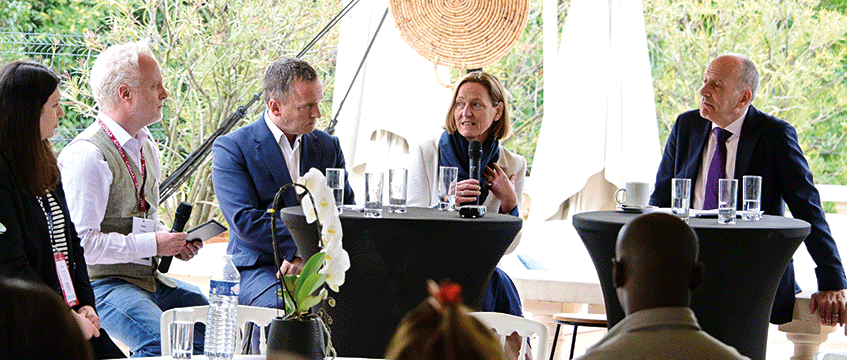Real estate players have warned of the progress that could be undone by US president Donald Trump’s pushback against diversity, equity and inclusion in governmental and corporate America.
The topic was tackled at a Real Estate Balance and Greystar panel, introduced by Greystar senior managing director Bella Peacock and chaired by Estates Gazette at MIPIM.
Trump has criticised what he has called “illegal and immoral discrimination programmes”, signing an executive order banning DEI initiatives in federal agencies or contractors and arguing that “Americans deserve a government committed to serving every person with equal dignity and respect”.
Many companies in the US have now amended or even abandoned DEI initiatives and targets. Analysis from the Financial Times found “hundreds” of US companies that have removed some or all references to diversity, equity and inclusion from annual reports this year, including 90% of the largest companies in the S&P 500 index to have filed a 2024 report.
10-K filings from agencies including Cushman & Wakefield, CBRE, JLL and Newmark for 2023 all included paragraphs in their “human capital” sections outlining initiatives in areas termed “diversity, equity and inclusion”, “diversity, inclusion and equal opportunity” or similar. This year, none included that sub-section or referred to such phrases.
Like it or not
Discussing companies that have “moved away from targets or come out of indices or groupings”, Landsec chief executive Mark Allan said: “Donald Trump, whether we like it or not, won the US election – and he didn’t win it by a whisker, he won it very substantially. The US is a huge domestic market for these businesses, so I think there’s an element of making sure they’re not antagonising a vocal proportion of their customer base, their market, by being seeing picking a fight with the Trump White House.”
For a company such as Landsec, DEI is about “mirroring the communities in which we are establishing, curating and looking after the places in our portfolio”, Allan said. He added that changes in language from companies do not necessarily equate to change in intent.
“I would urge people to avoid looking at things in an overly binary context, and to understand the wider backdrop against which some of this stuff is happening,” Allan said.
“I personally don’t believe that people who lead organisations that believe passionately in diversity and inclusion feel any differently today than they did a year ago… I think what’s changing is the backdrop, and I think it’s a much broader backdrop than simply talking about diversity and inclusion. It’s understanding that we are all in an environment where we are having to justify what we are here to do and, particularly, in a UK context, looking at how we drive economic growth.”
Raise a glass
Jo Davis, chair of Real Estate Balance and UK chair of agency Avison Young, was asked how significant a moment this was for the DEI agenda and what concerned her about announcements coming out of the US.
“There is no point pretending – what’s happening across the pond is going to impact what’s happening here… My glass-half-empty [view] is it is serious, we need to be concerned,” she said.
The glass-half-full view, Davis added, could be seen in the crowd that travelled to the Greystar villa to listen to the discussion.
“To make great places you need diversity of voice and diversity of people. You don’t get that by not continuing on the journey,” she said. “It’s our collective responsibility to keep banging on the table and making sure that those changes don’t fall away. You can’t start a journey and then decide to get off the bus with something as important as this.”
Jules Pipe, London’s deputy mayor for planning and regeneration, made clear that City Hall would not alter its stance – even if the Trump-led pushback lasts longer than initially thought.
“What worries me is that we might not just have four years of this, we might have 12 years of this depending on how the next election plays out in America,” Pipe told the discussion.
“Certainly from a City Hall perspective, it’s not going to change the way we operate. We have laid out clear expectations from what we expect from people we work with. We are trying to build a diversity that’s inclusive and we are not going to be thrown off track from that.”











